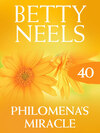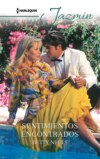Kitabı oku: «Sister Peters in Amsterdam», sayfa 2
At two o’clock the first guests arrived; most of them had mothers or big sisters with them. Adelaide sat the children in rows on the floor; the grown-ups lined the walls. Presently Zuster Zijlstra arrived, opened the piano, and started to play the first of the traditional tunes, and everyone began to sing. Adelaide didn’t understand a word, but when St Nicolaas appeared with his black slave, she laughed and clapped with everyone else, and carried the smallest toddlers up to receive their presents. She was enjoying herself enormously. At length the Saint made his stately exit, sent on his way by enthusiastic and rather shrill singing. Adelaide dumped the baby she was holding into the nearest nurse’s lap and went over to the tables to pour lemonade and hand out biscuits.
There was no lack of helpers; she piled the oranges in baskets ready for the nurses to take round, talking all the while to Zuster Zijlstra in her mixture of Dutch and English. It was at this moment that the professor, with his aunt and sisters, chose to join them. They all seemed to know Zuster Zijlstra, and greeted her like an old friend. Adelaide, started to move quietly away, but the professor, who had been expecting her to do just that, put out a detaining hand and turned her smartly round, and performed his introductions in English.
She found herself the centre of an animated group. His two sisters were very like him, with dark hair and blue eyes; they wore their elegant clothes with a careless grace. His aunt was small and slim and just as elegant as her nieces. She eyed Adelaide with bright black eyes and talked to her in a gentle voice. They were all charming to her and chattered and laughed until they were presently joined by several children, who addressed the professor as Uncle, and smiled shyly at Adelaide as he introduced them. When, after a little while, they all bade her goodbye. Adelaide watched them go with regret; it seemed unlikely that she would meet them again.
The professor made no attempt to go with them. Adelaide hesitated.
‘I must go and help the others; I’m not doing my share. It was delightful meeting your family, Professor.’
She was about to turn away when an attractive young woman put her hand on the professor’s arm. Adelaide looked at her. This must be Margriet. At once, and irrationally, she disliked her. Freule Keizer was extremely good-looking, with blonde hair and blue eyes and a magnificent figure; she was dressed with the simplicity of wealth with a sparkling bandbox finish that caused Adelaide to put an involuntary hand up to tidy away the curly wisps escaping from her cap. She was suddenly aware of the lemonade stains on her apron and its deplorably creased condition.
Margriet spoke. ‘There you are, Coenraad. I wondered where you had got to.’ She gave Adelaide a cursory glance. ‘Are you coming?’
The professor had apparently not heard her.
‘Sister Peters, I should like you to meet Freule Keizer.’ He turned to the girl beside him. ‘Margriet, Sister works with me in the clinic.’
The young women shook hands and smiled politely. Margriet’s smile didn’t quite reach her eyes.
‘How awful for you, having to work.’ She made it sound like an insult.
‘But I enjoy it, you know,’ Adelaide protested. She was struggling to overcome her dislike of Margriet, who looked astonished and turned to the professor.
‘You don’t know how lucky you are. You’ve at last got a nurse who is wedded to her work.’ Her tone made it clear that work was all that Adelaide could hope to wed. Her glance rested on Adelaide’s hair and she allowed her beautiful eyebrows to arch slightly. She smiled. ‘Such unusual hair! You must find it a great drawback.’ The professor, listening idly, heard Margriet’s last remark.
‘How bad your English has become, Margriet. I don’t think that drawback is the word you mean.’ He sounded reproving.
Margriet laughed—she had a charming laugh.
‘Do forgive me, Sister—there, I have forgotten your name already. It’s quite true, my English is shocking; that’s because I dislike speaking it, I suppose.’ She turned to the professor. ‘I must go and say goodbye to Lisette and Paula. Shall I wait for you in the car?’ She didn’t wait for him to reply, but said goodbye to Adelaide with cold charm, and slipped away.
‘I must go too, Professor.’ Adelaide looked pink and was breathing rather quickly, struggling to regain her temper.
The professor said, ‘Of course, Sister, but don’t forget that we shall all be meeting in my office in an hour’s time to open our presents.’
When Adelaide got to the office it was just striking six o’clock. She was the last one to arrive and found Zuster Wilsma and the other nurses grouped around the desk, laughing and talking with the doctors.
The professor looked up as she came in. ‘Good, now we can begin,’ he cried, and pushed a pile of gaily coloured parcels in front of the youngest nurse. ‘You first, Nurse Eisink.’
They all watched as she undid each parcel and admired the contents in turn. Zuster Steensma followed, her homely face alight with pleasure, and then Zuster Wilsma, and lastly Adelaide. As she unwrapped the first package she asked:
‘But how can I thank the givers if I don’t know who they are?’
Dr Beekman laughed. ‘That’s the whole idea, Sister. You mustn’t know. Remember St Nicolaas gave them to you, and thank him.’
She did this, piling up the pretty trifles in front of her. The last two parcels were elegantly wrapped and tied with ribbons. She opened the flat box first, and gazed with delight at the fur-lined suede gloves inside.
‘They’re beautiful!’ she exclaimed, and tried them on. They fitted perfectly. She looked around at the faces of the others watching her; it was impossible to tell from their expressions which of them had given her the gloves. ‘Thank you, St Nicolaas,’ she said, and added, ‘I can’t think who they are from.’
She opened the last parcel. It was quite small, and she almost dropped it when she saw what it was, wondering who could possibly afford to give her Madame Rochas perfume. Perhaps all the staff had put together. She took a blissful sniff, and thanked the Saint with a fervour which left her audience in no doubt as to her delight.
The two men opened their parcels together amidst a good deal of laughing and joking from the nurses, and by the time they had finished it was almost seven o’clock. The doctors got ready to leave, Dr Beekman reminding Zuster Wilsma, who was on duty until the night staff came on, that he was on call. No sooner had they gone than Adelaide sent the two junior nurses off duty. They lived in Amsterdam, and were looking forward to an evening at home with their families, and more presents. Zuster Wilsma rammed the last of the paper and string into the wastepaper basket; she looked forlorn. Adelaide remembered that she lived in Amsterdam too.
‘You live in Amsterdam, don’t you, Staff Nurse? You go home too. I’ve nothing to do for the rest of the evening.’ Her Dutch was clumsy, but Zuster Wilsma understood her and grinned with delight. She shook hands with Adelaide and tore off as fast as she could go. It seemed very quiet when she had gone. Adelaide sat down and looked at her presents again, wondering who had given them.
It was almost eight o’clock when she heard the ambulance bell. She went quickly to Casualty, switching on the powerful light over the couch and opening the door for the ambulance men. The blue flasher shone on the man hurrying towards her with a blanketed bundle in his arms. He laid his burden gently on the couch and took the blanket away. The little girl looked about two years old; she was unconscious, her little face the colour of skimmed milk. Even as Adelaide reached for the oxygen mask the blue tinge deepened, and the harsh breathing became more agonisingly difficult. Adelaide pushed an airway gently between the tiny teeth and slipped the catheter attached to the sucker down it. She switched on the motor, which made a reassuring purr. While she had been working, she had been aware of the mother standing close by. Now, with the essentials done, she turned to her. ‘Bronchitis?’ she asked. The woman nodded.
Adelaide beckoned to the ambulance man, glad he was one she had met several times before.
‘You’ll stay?’ She pointed to the sucker and oxygen mask. He nodded and she went quickly to the phone on the desk and asked for Dr Beekman urgently. When she heard the voice on the other end of the line, she said in her quiet efficient voice:
‘Dr Beekman? There’s a small girl just in—bronchitis and laryngeal stridor. She’s unconscious and her respirations are very difficult. Will you come, please?’ The voice said ‘Yes’ as she put down the phone and went back to the child, who looked worse. She cleared the sucker, put it carefully down the little throat again and gave it to the man to hold again, then sat about laying up a trolley. The tracheotomy instruments were always kept ready; there wasn’t much for her to do. She drew up a local anaesthetic into a syringe and was putting a sandbag under the small shoulders when she heard a car draw up outside. The ambulance man glanced at her—he wanted to be on his way; she thanked him as he hurried away, and said over her shoulder:
‘The doctor is here. Everything’s all right,’ and smiled reassuringly at the mother, sitting quietly in a corner. She turned back to the child, who gave a strangled breath as the professor came in.
He dropped his coat on the floor and stood for a moment looking at the small convulsed face, his fingers on the flaccid wrist.
Adelaide went to the head of the couch and steadied the child’s head between her hands.
‘Everything’s ready,’ she said quietly. ‘The local is on the lower shelf.’
The child hadn’t drawn another breath. The professor didn’t stop to scrub, but quickly injected the local anaesthetic, picked up a scalpel, and made a cut—quite a small one—in the little throat, securing it with a small hook. He spoke softly to the mother—Adelaide thought it sounded comforting, although she couldn’t understand what he had said—and the woman murmured a reply. He slit the trachea neatly, holding it open with the knife handle while he inserted the dilators. He mopped unhurriedly, and slipped in the tube with an unerring hand. He waited a moment, pushed the inner tube in and tied it securely. The operation had only taken a minute or two. They stood watching while a faint pink colour slowly started to blot out the blueness. The little girl’s breath rasped in and out of the tube, but it was regular again. The professor dabbed at a tiny spot of blood on his cuff.
‘Close call,’ he observed. Adelaide’s brown eyes smiled at him over her mask, and he smiled back. ‘Nice work, Sister.’
He went to the phone and asked Zuster Zijlstra to come to Casualty as soon as she could. A moment later she came in quietly. She was a tall girl, with merry blue eyes; she and Adelaide got on well together. She winked at her now, and asked ‘Busy?’
Adelaide, doing neat things with gauze and strapping, smiled.
‘No, but you will be!’
The professor, who had been talking to the mother, turned round.
‘Ah, my good Zuster Zijlstra, I want a cot, and oxygen tent, and a nurse to special this child. Will you fix them up for me, please?’
Zuster Zijlstra tossed her head. ‘You always want something,’ she complained. ‘I’ll do it at once, sir,’ and disappeared again.
The professor walked over to the couch.
‘I expect you’ve got some writing to do. I’ll stay here.’
He stood by the patient, listening to Adelaide asking the mother the routine questions which had to be asked before the child could be admitted. She managed rather well, using a minimum of words and being very wary of the grammar. Her pronunciation was peculiar at times, but on the whole he thought that she must have worked quite hard during the month she had been in Holland.
Zuster Zijlstra came back. She scooped up the small figure on the couch very carefully and went to the door, which the professor held open for her.
‘I’ll come with you. I’d better write up some sedation and antibiotics for her.’
Adelaide finished what she was doing and showed the mother how to get to the ward, then began to clear up; there wasn’t a great deal for her to do. She made up a fresh tracheotomy pack and put it in the autoclave, then stripped the linen off the couch and made it up anew. She was washing her hands at the sink when the professor returned.
‘The child’s fine. Zuster Zijlstra’s a wonderful nurse.’ He looked round. ‘Where’s Staff Nurse?’
Adelaide dried her hands carefully. ‘At home. She lives in Amsterdam.’
‘You took over her duty.’ It was more of a statement than a question.
‘Yes, sir. I don’t mind in the least. I wasn’t going anywhere.’ She sounded quite cheerful about it.
‘You should have taken your off-duty,’ he said evenly.
She threw the paper towel in the bin, and went to turn off the autoclave.
‘I rang Dr Beekman.’ Her voice held a question, politely put.
The professor was getting into his coat.
‘Touché, Sister Peters. I have taken Beekman’s duty over until midnight; his people have come down from Drente for St Nicolaas.’ He grinned at her, called good-night, and was gone.
CHAPTER THREE
CARDBOARD Father Christmases had taken the place of St Nicolaas in the shops. Adelaide bought presents for her family and sent them home. She might have felt homesick, but the friends she had made among the hospital sisters took care to include her as much as possible in their own activities, so that she had little time for moping.
Mijnheer de Wit spent a whole lesson describing the Dutch annual holidays to her. It seemed that Christmas was strictly for the family and more sober than the English version. The giving of presents was usual in the larger towns; in the country the day was marked by a splendid meal and plenty to drink. Turkey and Christmas pudding hadn’t gained much of a foothold, but many homes in Holland had a Christmas tree. New Year—now, that was different. The old man waxed eloquent in his beautiful Dutch—New Year was for everyone to enjoy. He made it sound exciting.
Adelaide had been rather puzzled by the amount of unwelcome attention her red hair had caused. Small boys called out after her in the street, mothers bringing their children to the clinic remarked on it, often with a laugh or pitying look. She was aware that her hair was rather unusual, but it had seldom been commented upon. One evening, at the end of a tedious lesson on the complexities of the Dutch verb, she mentioned it to her teacher. He broke into a rumbling laugh.
‘My dear young lady, the Dutch, as a nation, dislike red hair, and your hair, if I may say so, is very red. You must expect comment upon it, at least when you are in public. I must add that this is the general opinion. Many people admire it,’ he twinkled at her. ‘I do myself.’
Dr Beekman was early the following day; he had some notes to write up, and sat doing this while Adelaide sorted the X-rays. They had become good friends and Adelaide had spent pleasant evenings with his wife Leen; the girls had liked each other at once. Adelaide put the last X-ray on the desk and turned to the doctor.
‘Is my hair an awful colour?’ she asked.
His blue eyes opened wide. ‘Well, it is rather red,’ he replied cautiously. ‘Why do you ask?’
She started to tell him. She hadn’t heard the professor come in; he leaned against the door, listening, as she explained about the small boys. ‘Oh, well,’ she said in a matter-of-fact voice, ‘we’re all afflicted with something, I suppose. Red hair is no worse than a squint or jug handle ears, or a large beaky n…’ she stopped, because of the expression on Dr Beekman’s face. He was looking over her shoulder, at someone behind her, and trying not to laugh.
The professor advanced into the room; his ‘good morning’ was quiet and uttered in a bland voice.
Adelaide felt herself blushing hotly, but she faced him bravely and said, ‘I do beg your pardon, sir. I wasn’t speaking of your nose…’ she stopped and tried again. ‘Yours is quite a nice sort…’ She encountered the professor’s eye. It was fixed steadily upon her; there was absolutely no expression on his face. She had a horrid suspicion that he might be laughing at her, and lifted her chin and looked down her own pretty little nose.
‘I like beaky noses,’ she said, and was relieved to see him smile.
‘Thank you, Sister Peters. Your good opinion will do much towards enabling me to bear my affliction with equanimity.’ He added thoughtfully, ‘How thankful we should be that we do not have the squint.’
Adelaide smiled uncertainly. She still wasn’t sure if he was amused or merely polite—as was his wont. She minded very much if he were to be angry; just lately she had found herself going to a great deal of trouble to please him…
The professor, however, did not seem to share her feelings. He was running through the X-rays on his desk, and said briskly: ‘Shall we get started?’ He glanced at her, smiling faintly, and that was the only crumb of comfort she had.
Out-Patients closed for the two days of Christmas, but of course Casualty stayed open. Adelaide arranged to go on duty at one o’clock on Christmas Day, so that the nurses could go to their homes for the remainder of the day. She had been to the English Church in the Groenburgwal and sung carols, and felt a little homesick. There had been a dinner for the nurses on Christmas Eve; Matron had sat at the head of the long table, lighted by candles, and they had sung Dutch carols before they had started their meal. It had been pleasant and homely and she would write a long letter home about it.
It was very quiet in the clinic; Casualty was empty. She went along to her little office; she might as well start her letters, it would give her something to do. There was a parcel on her desk, wrapped in red paper patterned with robins, and tied with tinsel ribbon. Her name was on the label, written in the professor’s deplorable writing. Inside were three books: she looked at the authors—Jan de Hartog, Johan Fabricius, and Charles Dickens. She was relieved to see that they were all in English as she laid them on the desk before her. It was nice to be remembered; probably the professor had thought that she would miss the presents she would have had had she been in England. He was, she noticed, very considerate towards his staff. She had read quite a lot of A Christmas Carol when the phone rang. She picked up the receiver quickly, expecting a casualty call; instead, she heard the professor’s voice, sounding remote, wishing her a happy Christmas. She wished him one in return, and thanked him shyly for the books. She could hear a background of children laughing and shouting, and the steady murmur of voices, and pictured the family party gathered at his home; she supposed Freule Keizer was there too. Quite unbidden, a large lump came into her throat; she swallowed it desperately back and said in a steady voice: ‘I’m wanted on the other phone, sir. Goodbye.’
After a minute or two she pulled herself together, chided herself for being such a spiritless goose, and went into the tiny clinic kitchen to make herself a cup of tea.
Two days after Christmas, the clinic opened again, and as was to be expected, it was packed. The waiting room was full to overflowing by nine o’clock, and Adelaide, feverishly hunting for notes and X-rays, hoped that they would get finished by first dinner. Punctual to the minute, the professor, accompanied by Piet Beekman, stalked in. He wished her good morning briskly and added briefly in a deceptively mild voice: ‘As fast as you like, Sister. I hope all the notes and X-rays are here; we have a full morning’s work.’
Adelaide stiffened with resentment at the unfairness of his remark. She wasn’t a conceited girl, but she was aware that she did her work well. She shot him a cross look, wasted on his downbent head.
Staff Nurse Wilsma, back from a well-earned coffee break, had brought Adelaide’s post with her. She took it gratefully, glancing at the envelopes before stuffing them behind her apron bib. One of them had an Amsterdam postmark. She wondered what it could be, but there was no time to look. Zuster Steensma was struggling in with a small boy who was screaming and kicking and hitting at her with his small fists. His mother scuttled in after them; she looked frightened as she dodged round them and took the chair in front of the desk. The professor looked up from his notes and smiled at her, but forbore to speak; he would not have been heard in the din.
Adelaide handed Piet the examination tray she was holding and sailed across the room like a pocket battleship, plucked the small tyrant from the wilting nurse, and whisked him on to a couch. Admonishing him soundly for being such a bad boy, she removed his shoes and top clothes with the ease of long practice, evading his arms and legs with skill. He was so astonished that he stopped crying, and when he opened his mouth to start again, Adelaide pulled such a face that he burst out laughing instead.
‘Now be quiet,’ said Adelaide. She had discovered that the children responded just as well to English as Dutch; it was the tone of voice that mattered. There was quiet in the room. The professor murmured something to Dr Beekman, who laughed. They came over to the couch together, and Piet smiled at her and patted her on the shoulder.
‘It must be that hair of yours, Adelaide!’
While they were drinking their coffee, she remembered her letters; there was no time to read them all, but she glanced at the two from England, then opened the Dutch one. The envelope was large and of very thick paper. There was an invitation inside from the professor’s aunt, for Old Year’s Night. She couldn’t understand quite all of it, and took it over to the professor.
‘My aunt,’ he said. ‘She has a party every year, and always invites my clinic Sister.’ He frowned at Piet’s astonished face, and not giving him the chance to speak, said, ‘You and Leen are going, aren’t you, Piet? You could take Sister along with you, couldn’t you?’
‘Yes, of course.’ He turned to Adelaide. ‘You’ll love it, it’s like Christmas and St Nicolaas rolled into one.’
That evening, he told Leen about it. ‘There’s never been a clinic Sister invited to his aunt’s house before.’
His wife laughed. ‘But, Piet, remember that Adelaide is a stranger here—I expect Coenraad thinks she deserves some fun while she’s in Holland.’
Adelaide was ready and waiting when the Beekmans called for her. She had taken great care with her hair, the chestnut brown bow she wore in it exactly matched her velvet dress. It was last year’s, but it suited her anyway. She hadn’t been able to afford a new one. It was a bitter cold night, and they were thankful for the fragrant warmth which enveloped them as Bundle, the butler, ushered them into the hall of the Baroness’s house. A maid took the girls upstairs while Bundle took Piet’s coat and went in search of the professor, who followed him back into the hall.
‘Piet, before we begin the festivities, that case we admitted today…’ the two men became absorbed. Adelaide, coming downstairs with Leen, had ample opportunity of studying the professor in the hall below. She hadn’t seen him in a dinner jacket before; he looked very handsome. Her heart began to beat faster; he had never seen her out of uniform. The two men turned round, and the professor’s eyes swept over her and on to Leen. She doubted if he had even noticed that she wasn’t wearing her cap and apron. She said good evening in a small voice, and they all went into the salon where his aunt was standing. She greeted Adelaide pleasantly, and beckoned to Mijnheer de Wit, who was standing nearby, and asked him to take her round and introduce her to everyone. Adelaide went with him from group to group, murmuring her name as she had been taught, and trying to remember the names murmured back to her. Her hand was shaken so many times her arm began to ache. The old gentleman drew her on one side.
‘Now you know everyone, Miss Peters.’
Adelaide shook her head. ‘I can’t remember a single face or name.’
He laughed, and patted her arm. ‘Never mind, here’s someone you know anyway.’ He nodded towards the professor, who was crossing the room. Margriet Keizer was with him; she had an arm in his, and was chattering gaily. She looked charming, her green dress making Adelaide very aware of her own slightly out-of-date model. The head-to-heels glance Margriet gave her as they shook hands did nothing to improve Adelaide’s feelings, and she suddenly wished with all her heart that she had never come. She glanced around her; she just didn’t belong, these people were so obviously well-to-do and leisured and beautifully gowned. The thought that they might be pitying her, as Margriet was, pinkened her cheeks. She hated the professor’s aunt for inviting her; she hated him too, just because he was there, carelessly friendly and not in the least interested in her.
They stood together in a small group, while she matched Margriet’s gaiety with a wholly false vivacity of her own. This put a strain on her usually retiring nature, and when a young man in a brocade waistcoat joined the group and asked her to dance, she accepted with pleasure. She didn’t much care for the owner of the waistcoat, who was, she suspected, younger than herself, but at least he wanted to dance with her. The professor had had ample opportunity to do the same if he had wished. She sensibly decided to enjoy herself. Her partner danced well, their steps suited, they circled the large room, and she took care to turn a smiling face in the professor’s direction. It was a pity that he wasn’t looking. He was dancing with Margriet.
During the next hour or so she had frequent glimpses of him; she noted that he danced with a great number of the women guests, and several times with Margriet. She was agreeably surprised to find that she did not lack for partners, and danced every dance, telling herself sensibly that she might as well forget the professor. Having come to this conclusion, she went off to the supper room with Jan Hein, the youthful owner of the brocade waistcoat, and lingered over the delicacies provided until almost midnight. When they went back to the salon everyone was standing, glasses in hands, waiting for the clock to strike. Its silvery chimes were drowned by the outburst of sirens and hooters and fireworks from all over the city. Glasses were raised and a round of hand-shaking and kissing began.
Adelaide, unused to the tonic effects of champagne, was enjoying herself; she had even forgotten the professor, standing talking to his aunt, just behind her. She watched Jan pushing his way towards her through the crowd, and realised that he was rather drunk. She decided to evade him, and stepped backwards into the professor’s arms. She felt herself turned neatly round to face him, to be kissed squarely on her mouth.
‘A Happy New Year, Miss Peters.’ The band had just started to play again, a Strauss waltz, and before she realised what was happening, they were half way round the room.
‘How very high-handed,’ she remarked coldly.
He reversed neatly into a corner. ‘Don’t you like dancing with me, Miss Peters?’
She looked up at him, and said with an incurable honestly. ‘Yes, I do, very much.’
They went on dancing; she hoped that the band would forget to stop and tried to think of something clever to say. Her mind was blank, but luckily the professor didn’t appear to be much of a conversationalist while he danced. She stopped worrying and gave herself up to the pleasure of dancing; the professor danced very well indeed, but she had known he would. The music stopped and someone tapped her on the arm. It was Piet Beekman.
‘We must go, Adelaide. The baby-sitter said one o’clock, and not a moment later. Are you coming?’
Before she could reply the professor said in his easy way:
‘Why not let Sister stay? I am sure she will have no lack of offers to see her home, and in the unlikelihood of her being on her own, one of us will see her back later.’
‘Thank you, professor, but I should like to go now; I’m on duty in the morning.’ She spoke quietly in a stiff little voice and turned away with a brief good night to find the Baroness, who rather surprisingly kissed her and urged her to come and see her again. Adelaide made a vague reply to this, thinking it very unlikely that she would see her hostess again. She intended to concentrate on her Dutch lessons and her own small circle of friends in the hospital. She watched the professor and Margriet going towards the balcony. She wasn’t sure what she had expected from this evening—perhaps that if he saw her out of uniform, he would realise that she was a girl as well as a highly trained cog in the hospital machinery. As she went upstairs with Leen to get her coat, she allowed herself to remember that he had kissed her, but then so had a great many other people; she derived little comfort from the thought.
She said goodbye to Leen and Piet at the door of the Sisters’ home, and went upstairs to her room, where, despite the lateness of the hour, she sat on her bed thinking about the evening. One fact emerged very clearly—she was in love with the professor.
She had a whole day to get over the party. Casualty was slack; there was no clinic. She sat in her office, scowling over her Dutch grammar. After a while she shut her books and wrote a letter home. She gave a colourful and gay account of the party; it was slightly exaggerated, as she wanted her family to know what a good time she was having. She carefully made out a money order to go with the letter. The boys’ school fees would be due again soon. They were clever, and deserved the best education that could be managed. Her thoughts played truant again, and she wondered if Professor Van Essen was rich. She had no idea where he lived, but she supposed he had a good practice in Amsterdam. It was natural that she should think about Margriet Keizer too, for she was obviously a close friend of his.
Ücretsiz ön izlemeyi tamamladınız.


















